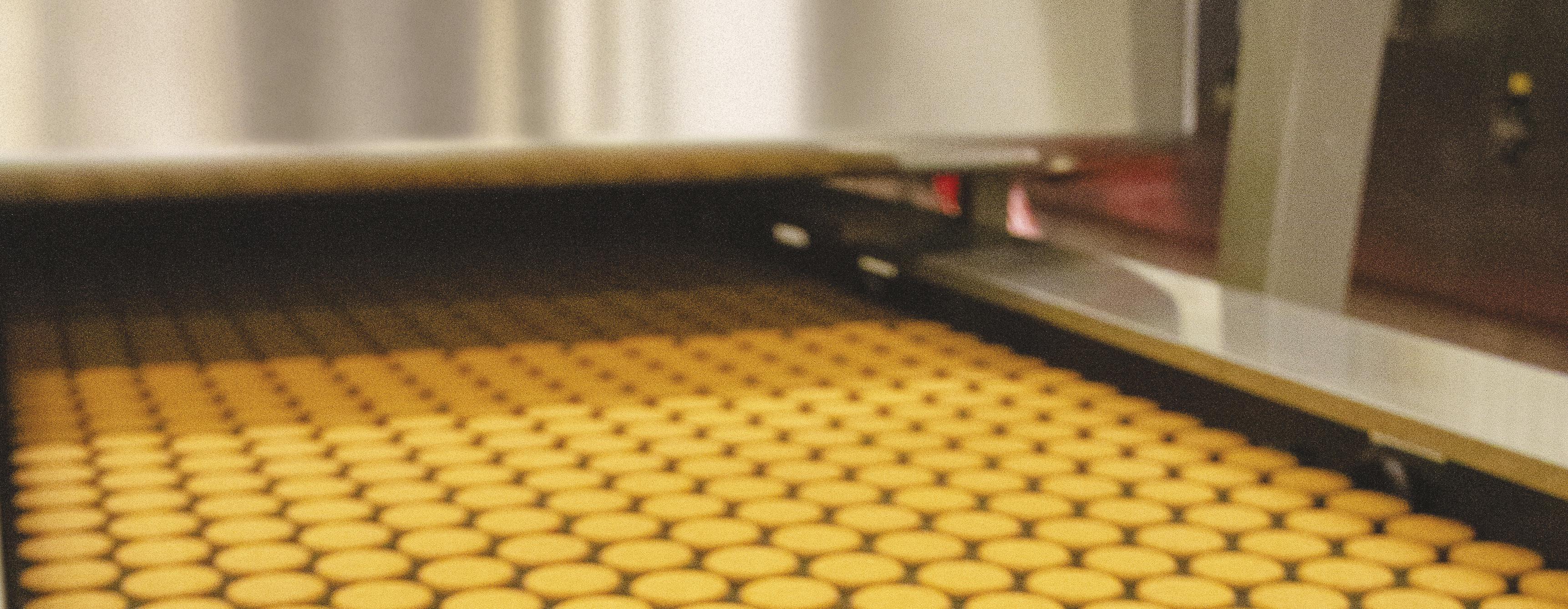
3 minute read
Local service support
for bake oven belts and conveyor systems
IPCO is a world-leading manufacturer of solid and perforated carbon steel bake oven belts, supplying OEMs and end users across Africa. IPCO belts bring a unique combination of qualities to the production of baked goods.

Firstly, the outstanding thermal properties of a solid or perforated steel belt translate into extremely efficient baking and – on many products – an appealing crisp base. A flat, smooth surface ensures clean product release with minimal risk of damage to fragile goods.
There are no gaps, recesses or crevices in which carbon deposits could collect.
This means that a steel belt stays cleaner for longer, lessening the risk of product burning onto the belt. When cleaning is required, steel belts are inherently quicker and easier to clean than mesh belts, resulting in less water consumption, reduced use of chemicals/detergents and easier changeover from one product to another.
The tough, hard-wearing surface also means exceptional durability. A lifetime of 20 years is not uncommon; even 50 or more years is possible with good maintenance.
This compares extremely well with wire mesh belts, which typically last 4 – 5 years.
Steel belts are also extremely versatile, being suitable for products as diverse as bread, biscuits, brownies, crackers, pastries, sponges, all-butter cookies and pizza bases.
IPCO can produce belts in widths from 800mm to 3500mm. This makes it possible to achieve significant improvements in productivity without having to invest in factory extensions or new facilities. An oven with a 1500mm wide belt offers almost twice the productivity of one with an 800mm belt without any increase in the line length.
SERVICE AND MAINTENANCE SUPPORT

In terms of maintenance, qualities such as good tension and tracking characteristics and resistance to stretching combine to result in significantly less downtime than other belt materials.
IPCO’s engineers can also offer maintenance support that looks beyond the belt, as Marko Leber, Global Product manager, Food, explains. “The belt acts like a window into the performance of the entire oven. We understand how a belt interacts with the other components that make up the system as a whole. An inspection by our service team goes beyond the belt – we look at the whole line to understand how the entire system is performing. It’s almost always the case that belt condition is the symptom of a problem, not the cause. That’s why we recommend regular inspections. We offer comprehensive Preventative Maintenance Agreements that include inspections of the belt and associated components that can affect overall performance. Our objective is to identify and rectify potential risks of failure before they have chance to disrupt production,” says Leber.
IPCO has fully trained and equipped service teams on the ground in all key markets, including Africa. As well as enabling a quick response to any service or repair needs, this also means that work is carried out by qualified people with a real understanding of customers’ needs and values.
As part of a global business, IPCO’s local teams can also call on the support of the company’s Special Engineering team if required, experts who can be sent anywhere in the world to troubleshoot issues and provide specialist support.
ENERGY EFFICIENT OPERATION
Solid steel belts are lighter than wire mesh – perforated steel belts lighter still – so cost up to 30% less to heat. Each time the belt exits the baking chamber, it begins to cool and must be heated up again, so the savings are continuous. As much as 25% of an oven’s energy consumption is needed to heat the belt, so these savings can be considerable.
OVEN UPGRADES TO SOLID STEEL BELTS
While most of IPCO’s work with the bakery industry is focused on the manufacture and supply of steel belts, the company can also support OEMs in system design and supply a full range of conveyor equipment from sheaves and shafts to bearings and breakpoints. Other ancillary equipment available includes active and passive belt alignment solutions such as belt edge detectors, guide rollers and compact/ automatic tracking devices.
As a result of this close cooperation between IPCO and OEMs, it is often possible for manufacturers to gain the extra production flexibility delivered by upgrading the conveyor system from mesh to solid or perforated steel, without having to replace their existing oven. •
IPCO - www.ipco.com





